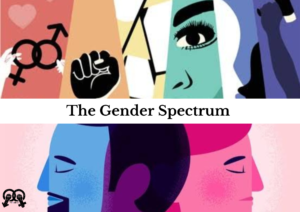What is gender empowerment?
What strikes your mind when you first hear the word empowerment? Women empowerment? While the concept of empowerment isn’t limited to a particular gender, and the term Gender empowerment could mean the empowerment of people of any gender, it has been conventionally associated with women. The concept stresses the distinction between biological sex and gender as a performative role, referring to other marginalized genders in a particular political and social context. It includes the following aspects and factors :
- The sense of self-worth, dignity and self-respect.
- The right to control one’s own life
- Ability to influence the direction of social change.
Why is gender empowerment important?
Gender empowerment creates conditions for gender equality. It makes development stronger and more sustainable. For example, if there are inadequate policies in place to empower women, who form half of the world’s working population. It’s a pressing moral and social issue because gender equality is a fundamental human right. Secondly, gender inequality is a trap and a vicious cycle. Inequality refers to unequal access to healthcare, education and employment opportunities. This cycle keeps women and other marginalised communities in poverty, so they are unable to climb the social ladder. Thirdly, gender Inequality is one of the oldest and most pervasive forms of Inequality. It has become the very part and parcel of society. It has excluded women, non-binary and trans people from social, economic and political power in the society. Gender inequality is also the root of all discrimination and prejudice against women and other sexual minorities. There are connections between gender, social equity and climate change. Understanding the close linkage is a key to social equity. Last but not least, to create a bring more participation in the society.

Credits: Sabia, Graphics Intern at Mandonna
What is the difference between gender equality and gender equity?
There is also a difference between gender equality and gender equity. Gender equality means equal outcomes for women, men and gender-diverse people. On the other hand, gender equity is the process of achieving gender equality. Gender equity recognises that women and gender-diverse people don’t have the same resources and opportunities to start with, the reason being historical and social disadvantages. Gender feminists aim to change traditional gender roles while equity feminists call for equal treatment and rights.

How to achieve gender empowerment?
- At the public policy level, to enhance the participation and women and other sexual minorities, gender mainstreaming plays an imperative role in achieving gender empowerment. Public policy changes can be brought, such as reservations for women and other sexual minorities at all levels, ensuring their representation as a prerequisite for various incentives to industries. This also calls for greater investment in soft infrastructure like healthcare and education in remote places. The easy accessibility to socially marginalised women and gender diversity will create a positive and empowering environment.
- Fund and support women and gender-diverse people-led organisations. The organisations can be supported through donations and collaboration with the governments. For example, the WICCI helps in the growth of women-led businesses. This has empowered women, especially in the MSME sector and built a gender-diverse startup culture. The support for
- At the workplace, the presence a supportive workplace system with a proper constitution of independent committees to look into the cases of sexual harassment of women and gender-diverse employees. Encouraging women to take up unconventional career paths like geosciences and STEM jobs. There’s also a need for an inclusive political atmosphere for women and gender-diverse people so that their issues are well represented. This is one of the important aspects of participatory democracy and democratic governance.
Gender empowerment is a key to achieving the sustainable development agenda of gender equality. This is the need of the hour. Gender empowerment can be measured through the Gender Empowerment Measure which is based on Gender Parity Index and Gender Development. We have not been very successful in enforcing the idea of gender empowerment as the issues of homophobia, child marriage and other gender issues. Through this, a more just social and economic order, nationally and internationally.
Authorship Credits
Sourishree Ghosh is currently pursuing her bachelor’s in Political Science from Jadavpur University, Kolkata. She is passionate about social and political issues and loves to write about them. Her hobbies include reading fiction books, painting, sketching and creative writing.





